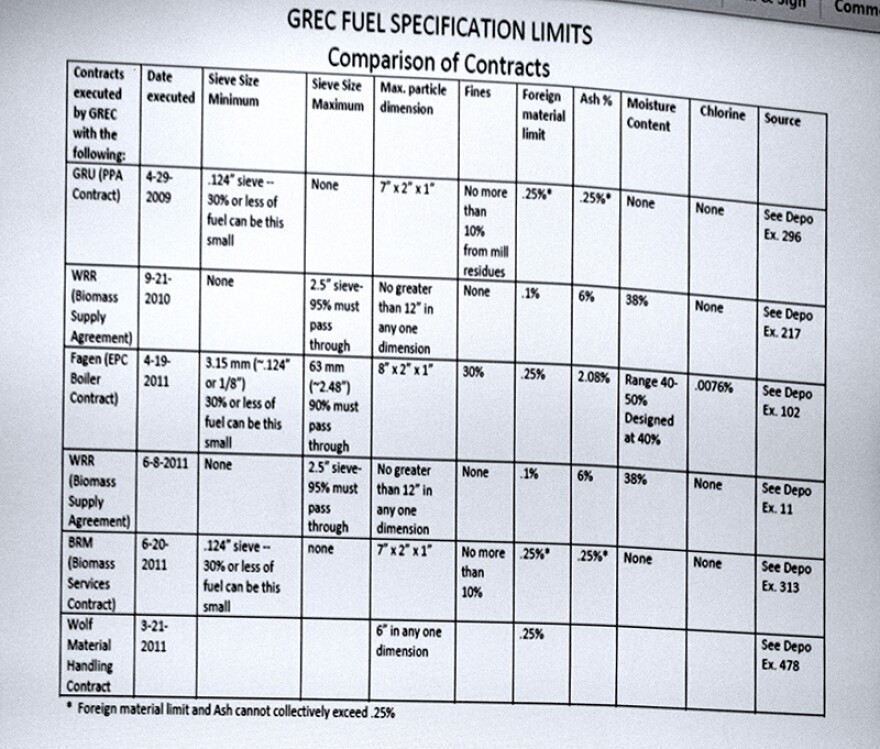When a wood supplier filed a lawsuit last year against Gainesville Renewable Energy Center, the attorneys for Gainesville's biomass plant shot back a month later with a counterclaim.
The trial to decide damages between the two parties shifted on Thursday from Wood Resource Recovery's case alleging a breach of contract to GREC's argument of how it was wronged.
Central to that argument is an understanding of how the biomass plant actually turns a pile of wood chips into a megawatt of electricity.
Len Fagan, who oversees GREC's engineering, explained Thursday in an Alachua County courtroom how the plant works, too.
"The steam goes into a steam turbine, and other things happen," Fagan said, "but the boiler is basically the fuel converter into heat that generates steam."
In the case, that boiler is important because if its ash system gets clogged up with sand and grit, it doesn't work. Sand doesn't burn.
As the plant operators prepared to begin producing electricity in the second half of 2013, they alleged that burning fuel from Wood Resource Recovery caused problems in the biomass plant's boiler.
"Our conclusion was ... there was excessive amounts of dirt in the WRR fuel," Fagan said.
It's not that simple, argued Wood Resource Recovery's attorney. The loads of delivered wood, attorney Kent Safriet said, were within the contract's specification of six percent ash content. He displayed a chart showing different limits for GREC's fuel specifications among its different contracts:
Fagan said he and his employees had seen ash content as high as 15 percent in Wood Resource Recovery's fuel. But when pressed for proof of those ash levels on Thursday, Fagan did not have it available.
Judge Monica Brasington will decide later this month which party is entitled to what amount of damages. Wood Resource Recovery wants $17.4 million for an alleged breach of contract by GREC; GREC is seeking $2.2 million for a seven-day shutdown of the plant it says was caused by the wood supplier's fuel.
Here's what happened in other parts of this trial:



